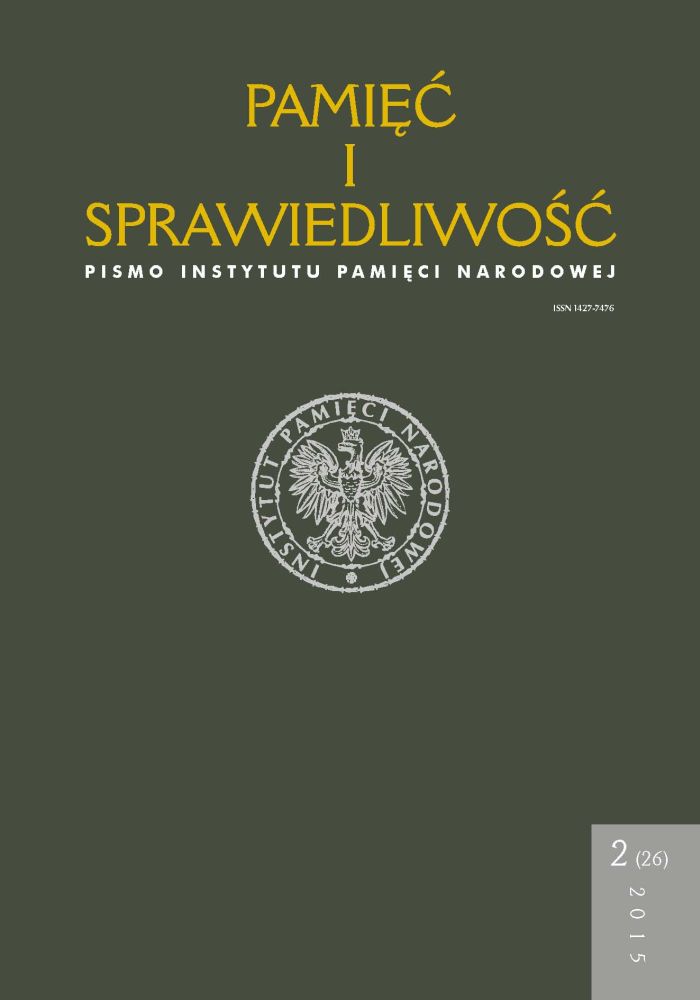W opozycji do Moskwy. Jugosłowiańska „droga do socjalizmu” w latach 1948–1956
In Opposition to Moscow. Yugoslav “Path to Socialism” in the Years 1948–1956
Author(s): Mateusz Sokulski, Martin PrevišićSubject(s): Cultural history, Political history, Social history, Post-War period (1950 - 1989)
Published by: Instytut Pamięci Narodowej
Keywords: Yugoslavia; The Year 1956; Eastern Block; Soviet Union; international policy; political repression; Goli otok; communism
Summary/Abstract: Due to political, economic and cultural changes carried out by new communist authorities Yugoslavia became the most communisesed state after the Second World War. Independence of the Yugoslav leader Josip Broz-Tito, who found state interests more important than Soviet one and put a tremendous effort to affirmate Yugoslav position in the international policy, led him to the conflict with entire Eastern Block which remained under Stalin’s impact. Soviet leader by using mechanisms from the 30’s tended to present Tito as an „internal enemy”. So called Tito-Stalin’s split in 1948 forced Yugoslavian leaders to find their own solutions (so called re-reading of Marx) in order to prove their legitimization of power. In the years 1948–1956 by so called self-managament, liberalization and democratization they tried to stay „true communists” that opposes Soviet distortion. In the internal policy they used political repression as the weapon against true or putative pro-soviets in Yugoslavia. 15 737 were imprisoned and amongst them 13 000 in the most famous camp on the island Goli otok Repressive methods used against convicted people were focused on re-socialization of imprisoned in order to get rid of alleged or real endangerment. In the foreign policy after split with Soviet block Yugoslavs tended to keep their independent position. Unless at the beginning they found West (first of all USA) as their allies, which made them able to withstand Soviet pressure, Tito was reluctant towards any alliance with Western World as he did not want to abandon communist ideology. After Stalin’s death in 1953 both Yugoslavia and USSR were seeking reconciliation after few years of conflict. That was finally fulfilled in 1955 and 1956 through Belgrade and Moscow Declarations. In such situation Tito abandoned any will to go on with political reforms and wanted to maintain predominance of communist party. Therefore he decided to convict and imprison pro-reformist high-ranked politician Milovan Djilas in 1956. Significance of the 1956 year as the crucial for Yugoslav foreign and internal policy may be perceived also in abandoning mass political repression towards pro-stalinists in Yugoslavia. The antagonistic interests of Moscow seeking Yugoslavia to get back to the communist camp and Belgrade being focused on its independent position, persuaded Tito to find its allies amongst the third world states as the counter balance towards Eastern Block and West. The meeting between Tito and leaders of Egypt and India is used to be treated as the first step in the Yugoslav policy in order to create non-align movement as the counter balance towards two main political blocks.
Journal: Pamięć i Sprawiedliwość.
- Issue Year: 28/2016
- Issue No: 2
- Page Range: 395-417
- Page Count: 23
- Language: Polish

